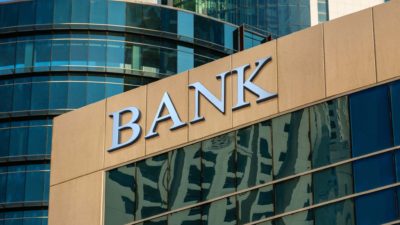It seems to have become highly fashionable on the ASX to question the valuation of the Commonwealth Bank of Australia (ASX: CBA) share price of late.
CBA shares have enjoyed an extremely lucrative few months. It was only back in late October that the share price of the ASX 200's largest bank stock was sitting around $96. But CBA has rebounded spectacularly ever since and has even spent 2024 so far hitting a series of new all-time record high share prices.
Today, CBA is sitting at $116.30 a share (at the time of writing), less than $2 away from its most recent all-time high of $118.24.
But this 20% rise since October has prompted many ASX experts to question the valuation that investors are now pricing Commonwealth Bank at. Earlier this month, my Fool colleague James went through ASX broker Goldman Sachs' rather dim view of the bank.
ASX experts call out CBA share price as overvalued
As we discussed at the time, Goldman reiterated its sell rating on the CBA share price, giving it a 12-month price target of just $81.98. That implies CBA shareholders could be facing an approximate 30% haircut over the coming year.
Here's some of what Goldman said to justify its bearishness:
…we do not think this justifies the 55% 12-month forward PPOP premium CBA is currently trading on versus peers (ex-dividend adjusted), compared to the 29% 15-year average… despite historically good performance on balancing investment and productivity, we stay Sell.
Goldman isn't alone in this line of thinking either.
As reported by The Bull, Philippe Bui of Medallion Financial Group has also recently given the CBA share price a sell rating. And lo and behold, valuation concerns were central to this view as well.
Here's what Bui had to say:
The CBA is the best of the big four banks, in our opinion. However, in the absence of strong earnings per share growth, it's difficult to justify CBA's premium compared to the other banks.
Statutory net profit after tax of $4.837 billion in the first half of fiscal year 2024 fell 8 per cent on the prior corresponding period. The net interest margin of 1.99 per cent was down 11 basis points.
In our view, it will be difficult to pay out increasing dividends if earnings don't improve.
It is hard to ignore CBA's valuation compared to even the other members of the big four. At current pricing, the CBA share price trades on a price-to-earnings (P/E) ratio of 20.33. In contrast, ANZ Group Holdings Ltd (ASX: ANZ) is sitting on a P/E of just 12.55.
This in effect means investors are paying 62% more for a dollar of CBA's earnings than a dollar of ANZ's.
That's something all CBA shareholders might want to keep in mind.









